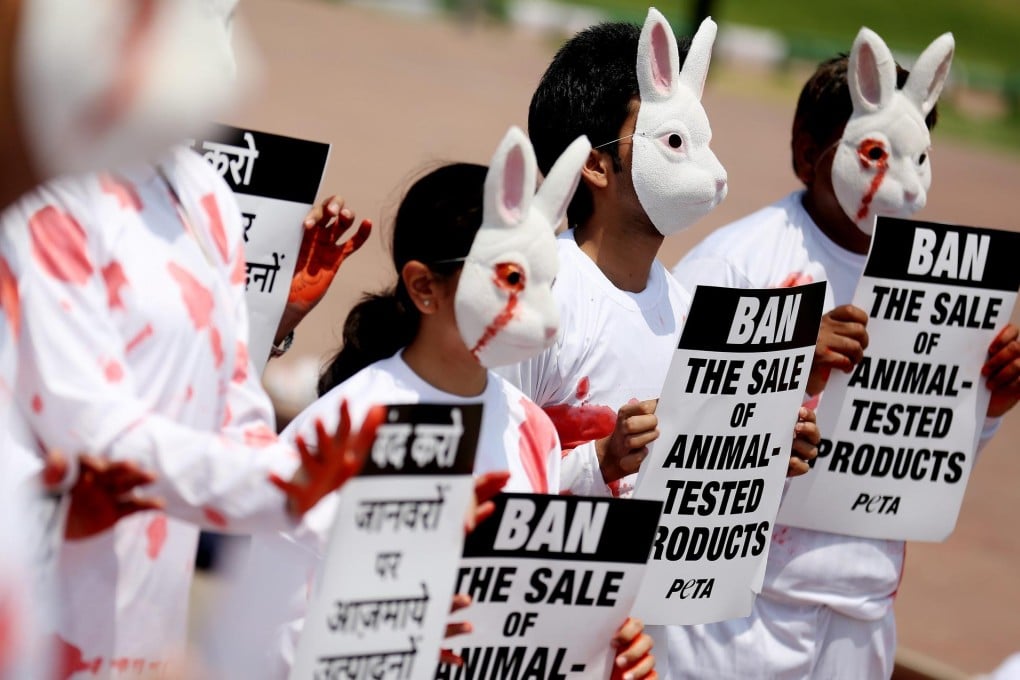'This eye shadow was tested on rabbits': call for mandatory labelling on cosmetics
Call for mandatory labelling on cosmetics so shoppers can tell which products have been tested on animals and which are cruelty-free

Animal-welfare advocates are pressing for mandatory labelling to allow customers to easily identify which cosmetics have been tested on animals.
The call comes as some European cosmetics brands continue animal-testing outside Europe - despite a complete ban in the EU itself on the sale or import of new cosmetics developed through animal testing.
"The fact that a brand is from Europe doesn't, unfortunately, mean that products sold in Hong Kong are cruelty-free; many companies reserve the option to have animal tests done outside Europe," Dr Nick Palmer, policy director for lobby group Cruelty Free International, said.
Dr Palmer visited China last month for talks with regulators, scientists and cosmetics companies on how the country can continue to move away from cosmetics tests on animals, after dropping requirements for animal tests on some products this year.
Hong Kong animal-welfare advocate Gary Chan Hak-kan said mandatory labelling would be a logical step before introducing a complete ban on products that had been tested on animals.
"The trade may need time to adopt the cruelty-free culture," added the legislator for the Democratic Alliance for the Betterment and Progress of Hong Kong.
"So we should do it in phases, starting with inviting the cosmetics companies to sign a pledge to adopt a cruelty-free policy, and then introducing a mandatory labelling system before a complete ban, which is our ultimate goal," he said.